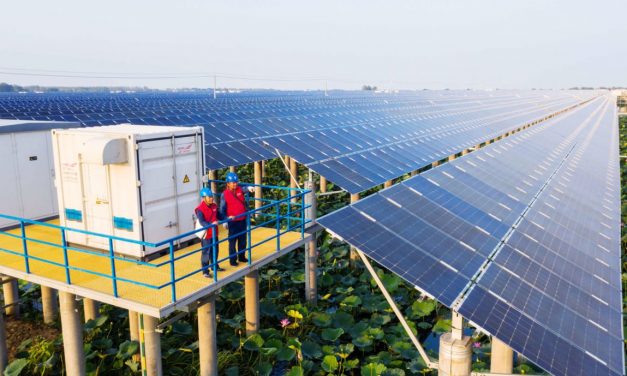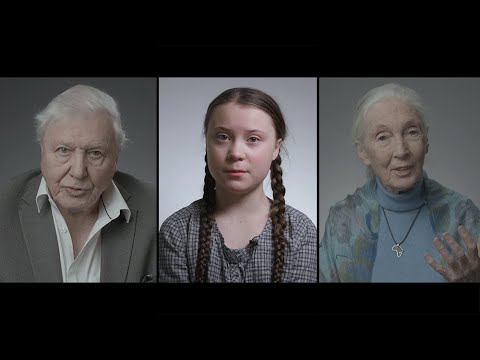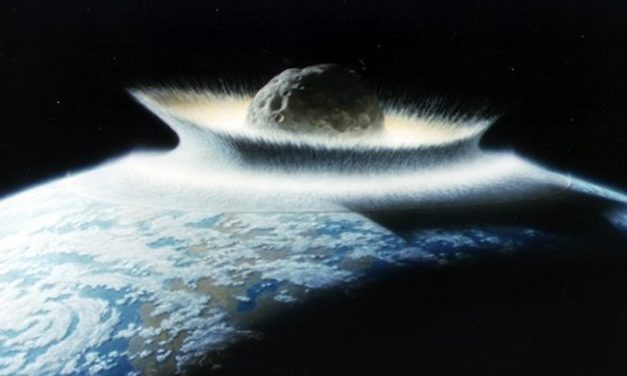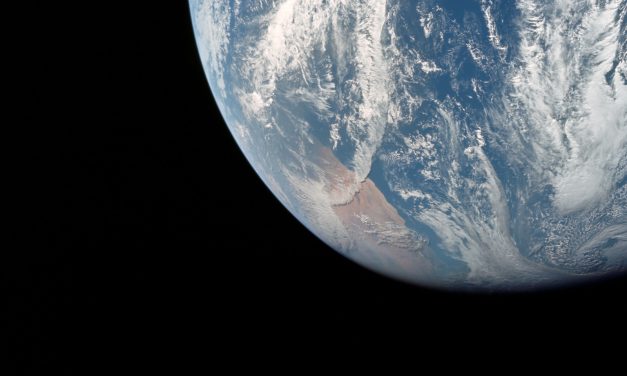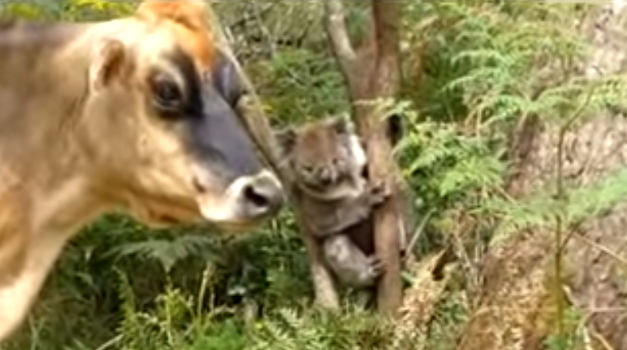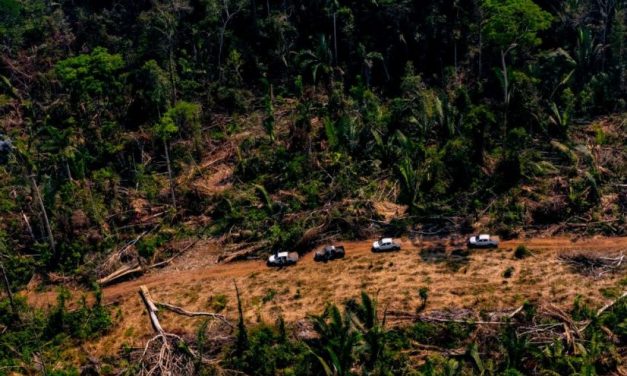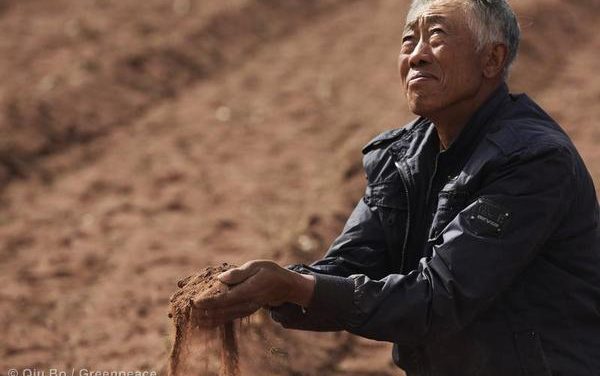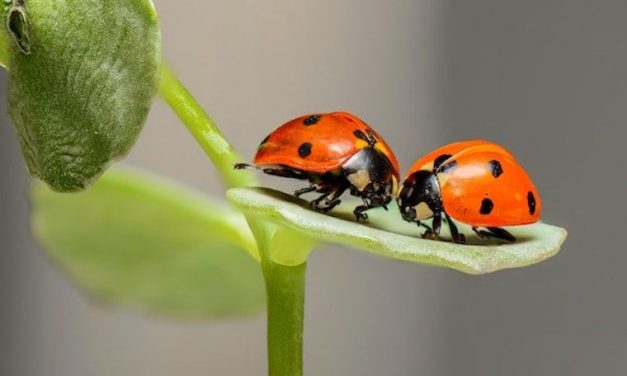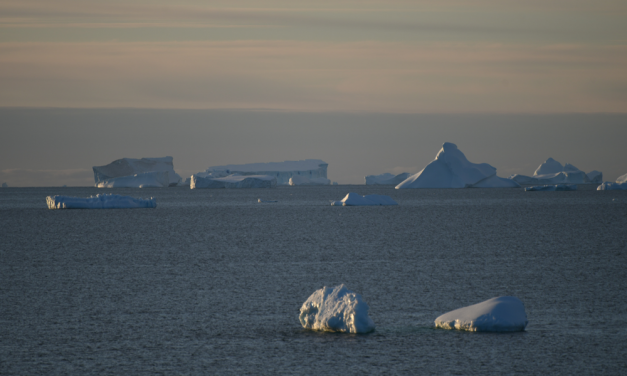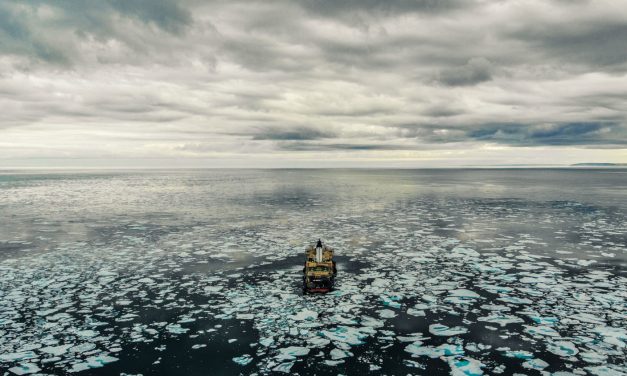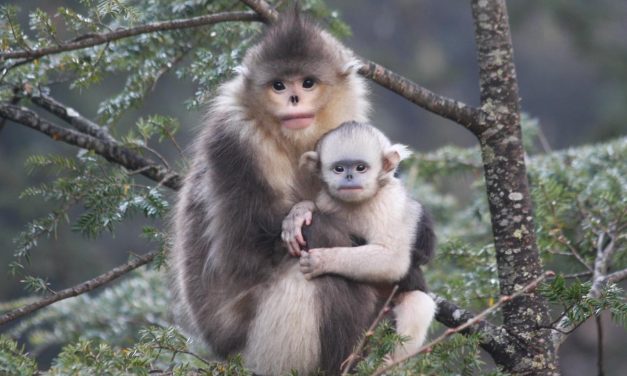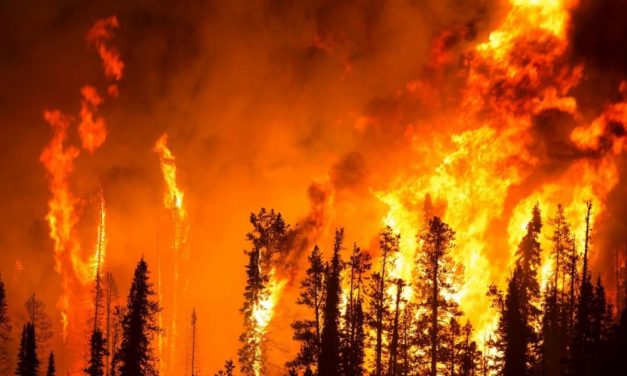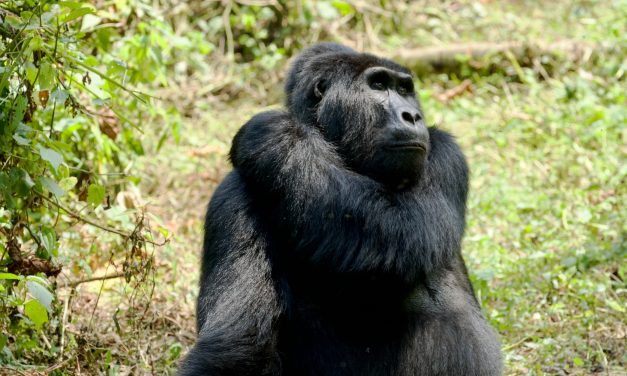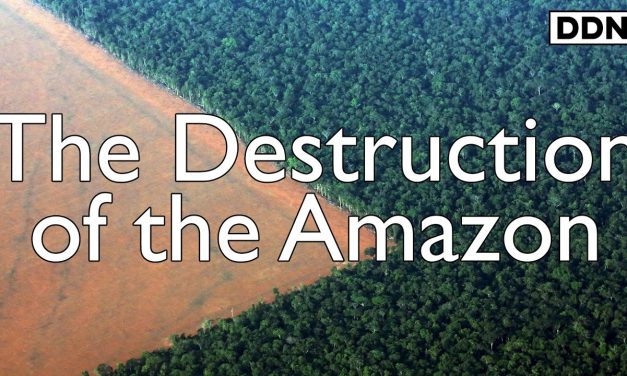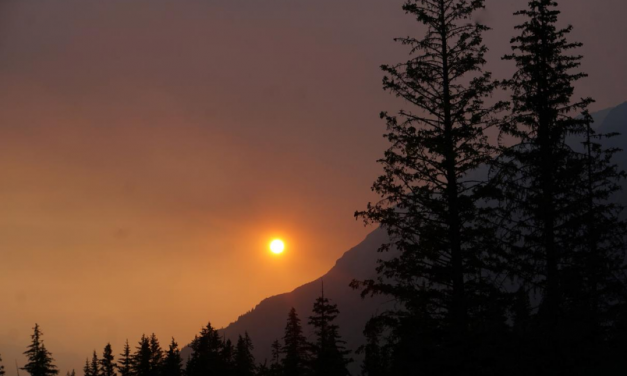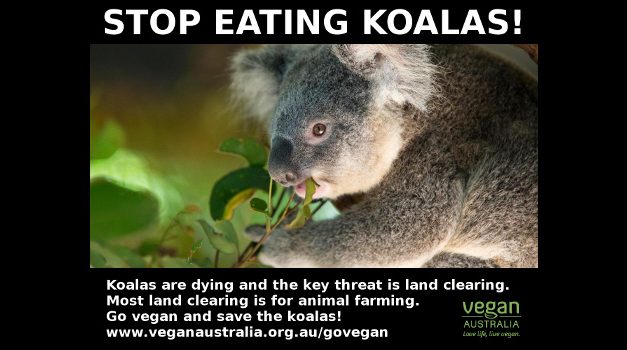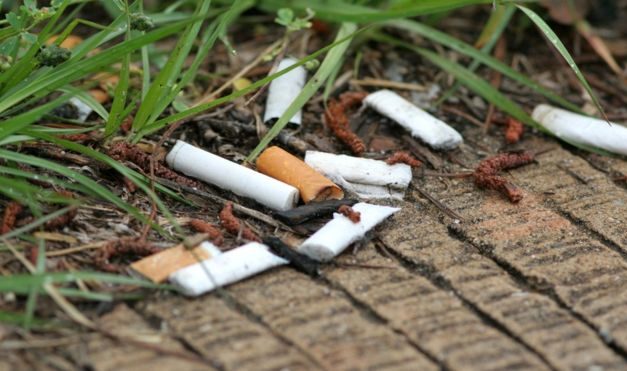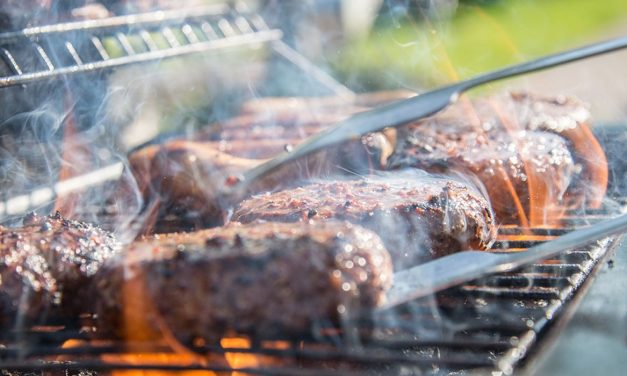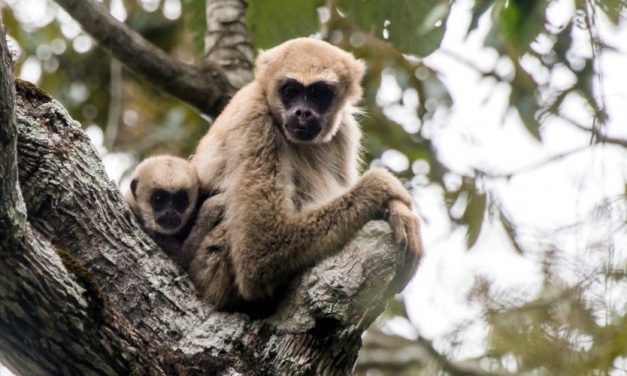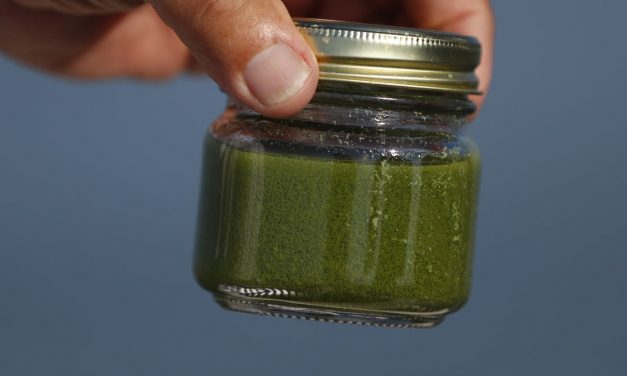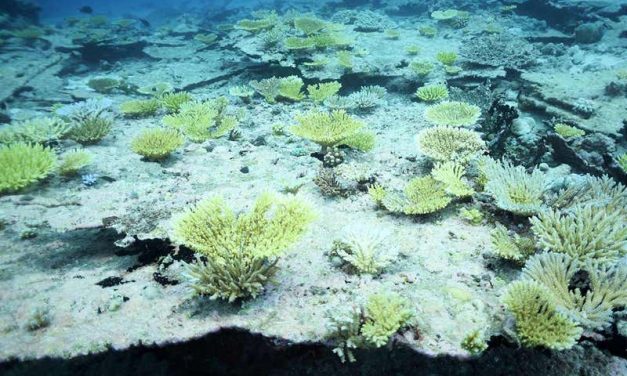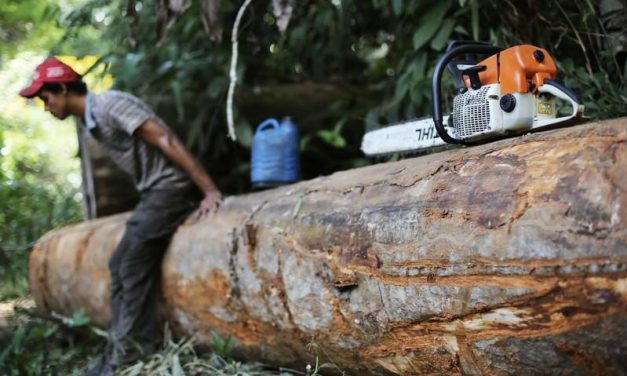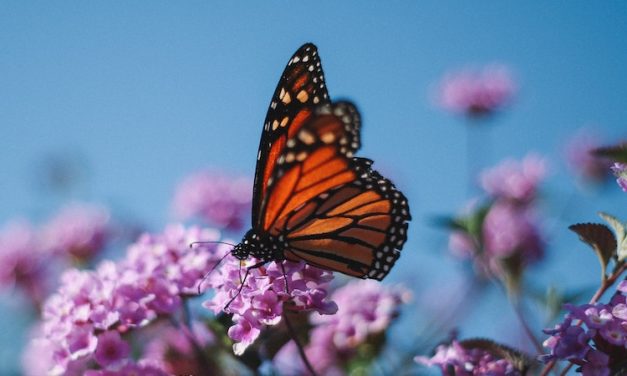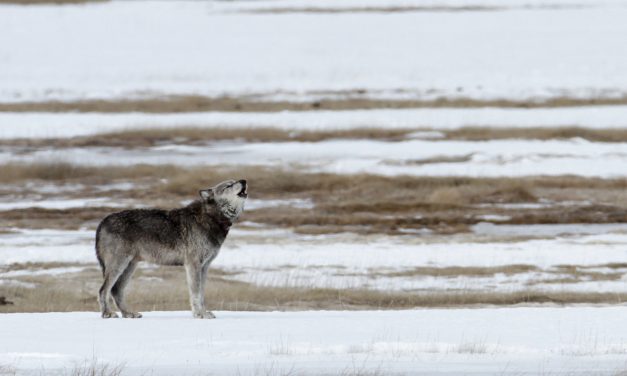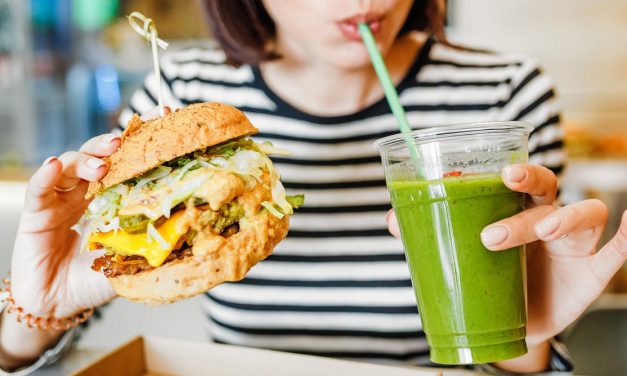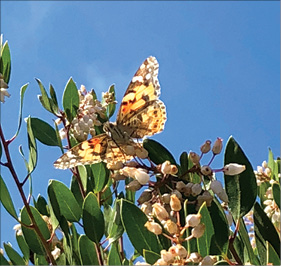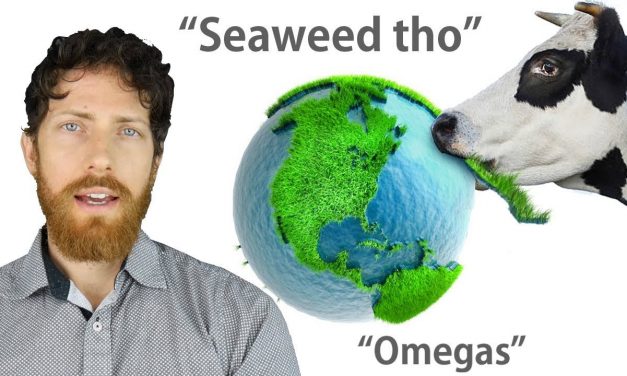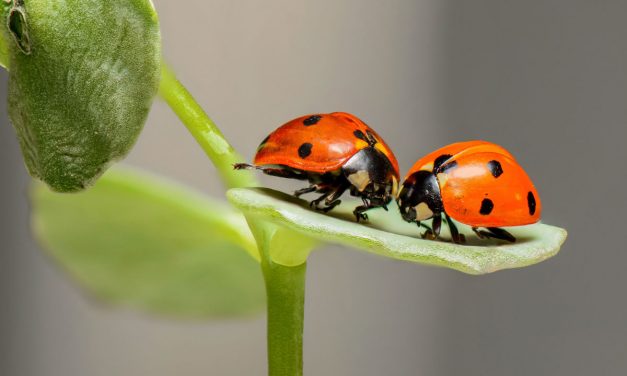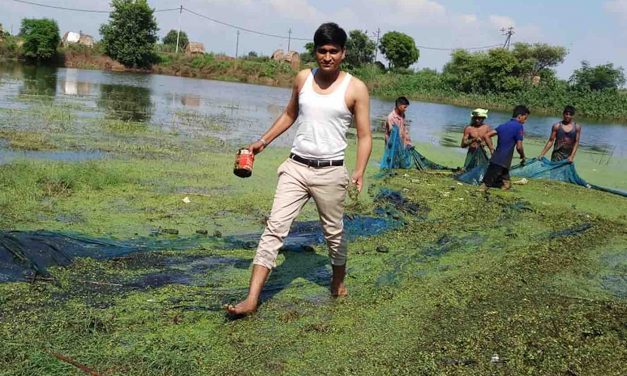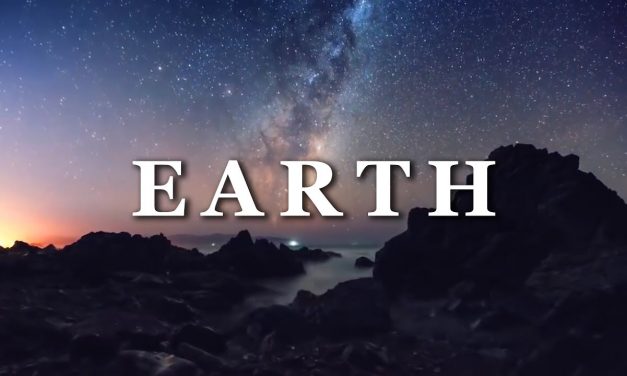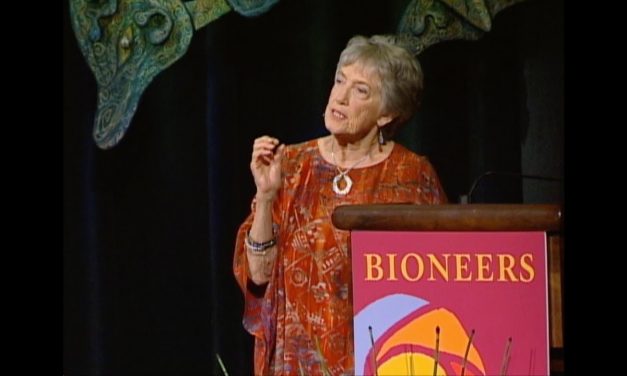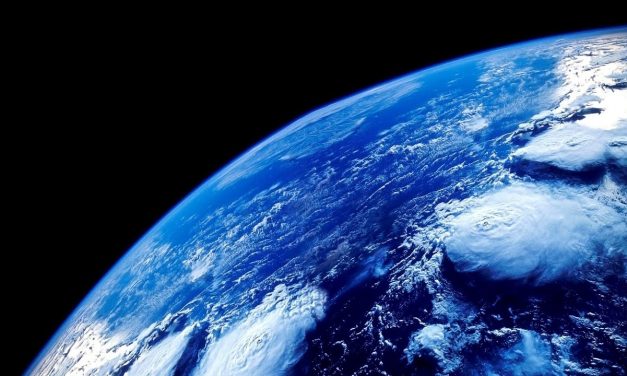Habitat loss
To Confront Climate Change, We Need an Ecological Democracy
by The CNCL Team | Sep 26, 2019 | Human Society | 0
Marit Hammond, a lecturer in environmental politics at Keele University in the U.K., advocates for the necessity of an “ecological democracy” in order to meet the climate emergency urgently and sustainably. In this interview, Hammond offers insights on what this new form of democracy would look like and how we can get there.
Read MoreGlobal Warming Causing Profound Changes to the World’s Oceans, Scientists Warn
by The CNCL Team | Sep 26, 2019 | Earth | 0
Climate change is profoundly altering the world’s oceans and frozen regions, threatening ecosystems and putting millions of people and their livelihoods at risk, according to a new report from the Intergovernmental Panel on Climate Change.
Read MoreDavid Attenborough, Greta Thunberg and Jane Goodall Want to Talk to You About Climate Change
by The CNCL Team | Sep 23, 2019 | Earth | 0
From disappearing species to plastic pollution and our disastrously weak attempts to recycle it, here’s what the top voices on climate change have to say about the planet’s escalating biodiversity crisis.
Read MoreOn the Precipice: The Collective Asteroid of Human History
by The CNCL Team | Sep 19, 2019 | Human Society | 0
It looks as if, in some future that seems ever closer, we might be our own asteroid, the one that will collapse human civilization as we’ve known it.
Read More4 Ways You Can Have a Positive Impact on the Planet
by The CNCL Team | Sep 19, 2019 | Personal | 0
Take action today to protect the Earth.
Read MoreAnimal Agriculture Is Major Driver of Australia’s Faunal Extinction Crisis
by The CNCL Team | Sep 9, 2019 | Earthlings | 0
In a submission to an Australian government inquiry into Australia’s faunal extinction crisis, Vegan Australia urged the government to move towards a vegan agricultural system to help save koalas and many other threatened species.
Read MoreProtecting Indigenous Rights Will Safeguard Future of Amazon Forest, Advise Colombian Tribal Leaders
by The CNCL Team | Sep 9, 2019 | Human Society | 0
A key way to safeguard the Amazon is by placing more land under protection, including indigenous reserves, backed up by government policy that monitors illegal logging, enforces laws and respects land rights in those areas, green groups say.
Read MoreEcological Trauma and Common Addiction
by The CNCL Team | Sep 9, 2019 | Personal | 0
Rex Weyler defines “ecological trauma” as the experience of witnessing – consciously or not – the pervasive abuse and destruction of the natural world, of which we are a part, and for which we have a primal affinity.
Read MoreThe Insect Apocalypse Is Coming: Here Are Five Lessons We Must Learn
by The CNCL Team | Sep 5, 2019 | Earthlings | 0
Although endangered mammals get all the headlines, a new scientific report warns that over 40 percent of the world’s insects are in danger of going extinct. If insects head toward precipitous decline and extinction, humans can’t be far behind. We need to advance our thinking about insects, their importance and what can be done to save them.
Read MoreAcid Oceans Are Shrinking Plankton, Fuelling Faster Climate Change
by The CNCL Team | Aug 29, 2019 | Earthlings | 0
Increasingly acidic oceans are putting algae at risk, threatening the foundation of the entire marine food web.
Read MoreA Northwest Passage Journey Finds Little Ice and Big Changes
by The CNCL Team | Aug 29, 2019 | Earth | 0
After decades of travel in the Far North, E360’s Arctic correspondent joins a voyage through the Northwest Passage and witnesses a world being transformed, with ice disappearing, balmy temperatures becoming common, and alien invaders – from plastic waste to new diseases – on the rise.
Read MoreIs Science Failing the World’s Primates?
by The CNCL Team | Aug 26, 2019 | Earthlings | 0
There are more than 500 known primate species, and approximately 60 percent of themare endangered, half of them critically. And yet, less than 20 percent of research was focused on conservation.
Read MoreThe Amazon Is Burning. And It’s Because We Eat Beef
by The CNCL Team | Aug 26, 2019 | Earth | 0
The fires burning up the world’s largest tropical rainforest have been raging for three weeks and are the fastest ever recorded in the area. Scientists have warned that the emergency could severely impact climate change efforts. Is it possible that our consumption of meat is to blame?
Read MoreThe World’s Forest Animals Are Disappearing at a Terrifying Rate: Report
by The CNCL Team | Aug 22, 2019 | Earthlings | 0
Forests around the world are losing the vertebrate animals that help to keep them alive, according to a new report by the World Wildlife Fund and the Zoological Society of London.
Read MoreThe Destruction of the Amazon Rainforest | George Monbiot
by The CNCL Team | Aug 19, 2019 | Earth | 0
“If we lose the Amazon rainforest, we lose everything.” Journalist George Monbiot warns us of the destruction of the Amazon rainforest, which has been greatly accelerating in recent months.
Read MoreAlaska’s Hottest Month Portends Transformation into ‘Unfrozen State’
by The CNCL Team | Aug 12, 2019 | Earth | 0
July 2019 now stands as Alaska’s hottest month on record, the latest benchmark in a long-term warming trend with ominous repercussions ranging from rapidly vanishing summer sea ice and melting glaciers to raging wildfires and deadly chaos for marine life.
Read MoreAnimal Agriculture Is Major Threat to Koalas
by The CNCL Team | Aug 8, 2019 | Earth, Earthlings | 0
Koalas in Australia are at risk of becoming extinct. The key threat to koala survival is land clearing, both past and continuing, and the key driver for tree-clearing is the production of animal products.
Read MoreCigarette Butts in Soil Hamper Plant Growth, Study Suggests
by The CNCL Team | Jul 22, 2019 | Earthlings | 0
Discarded cigarette butts can hamper plant growth, new research suggests. The study, led by Anglia Ruskin University, found the presence of butts in soil reduced the germination success and shoot length of clover by 27% and 28% respectively. For grass, germination success reduced by 10% and shoot length by 13%. An estimated 4.5 trillion butts are littered globally each year making them the planet’s most pervasive form of plastic pollution, the study said.
Read MoreCut Beef Consumption in Half to Help Save the Earth, Says New Study
by The CNCL Team | Jul 22, 2019 | Human Society | 0
The world’s population will hit 10 billion in just 30 years and all of those people need to eat. To feed that many humans with the resources Earth has, we will have to cut down the amount of beef we eat, according to a new report by the World Resources Institute.
Read More‘Unprecedented’ Decline of Plants and Animals as Global ‘Red List’ Reveals Nearly One-Third of Assessed Species Under Threat
by The CNCL Team | Jul 22, 2019 | Earthlings | 0
The Red List, published Thursday by the International Union for Conservation of Nature (IUCN), revealed that one third of all species the group has assessed are now under threat due to overfishing, pollution, illegal logging and trafficking, threats to water sources and habitats due to the climate crisis, and other factors, including many human activities.
Read MoreBreaching a ‘Carbon Threshold’ Could Lead to Mass Extinction
by The CNCL Team | Jul 22, 2019 | Earth | 0
Daniel Rothman, professor of geophysics, has found that when the rate at which carbon dioxide enters the oceans pushes past a certain threshold—whether as the result of a sudden burst or a slow, steady influx—the Earth may respond with a runaway cascade of chemical feedbacks, leading to extreme ocean acidification that dramatically amplifies the effects of the original trigger. This response likely occurred within 4 of the 5 great mass extinctions, and it’s happening right now.
Read MoreHow Your Diet Contributes to Nutrient Pollution and Dead Zones in Lakes and Bay
by The CNCL Team | Jul 15, 2019 | Earth | 0
Every year in early summer, scientists at universities, research institutions and federal agencies release forecasts for the formation of “dead zones” and harmful algal blooms in the Gulf of Mexico, the Chesapeake Bay and Lake Erie. This year the outlook is not good.
Read MoreDouble Heatwave Killed Two-Thirds of Coral in Central Indian Ocean
by The CNCL Team | Jul 15, 2019 | Earthlings | 0
Back-to-back heatwaves in the central Indian Ocean killed more than two-thirds of corals in two years. But some corals were more resilient to the high sea temperatures, which could provide hope for the important habitat as the planet warms.
Read MoreBrazil Deforestation Exceeds 88% in June Under Bolsonaro
by The CNCL Team | Jul 10, 2019 | Earth | 0
Deforestation in Brazil’s portion of the Amazon rainforest soared more than 88% in June compared with the same month a year ago, the second consecutive month of rising forest destruction under new President Jair Bolsonaro, who has called for development of the region.
Read MoreInsects: The Hidden Extinction
by The CNCL Team | Jul 8, 2019 | Earthlings | 0
An extensive study looks to quantify the extinction of insects around the world, and finds agriculture to be a driving factor in declining populations.
Read MoreKilling as a Government Service
by The CNCL Team | Jul 3, 2019 | Earthlings | 0
The USDA’s Wildlife Services program slaughters millions of wild animals every year — including endangered species. It doesn’t have to.
Read MoreThe Vegan Meat Revolution Could Help Save the Planet – And Fast-Food Chains Are Finally Taking Notice
by The CNCL Team | Jul 1, 2019 | Human Society | 0
A few years ago, convincing meat-free “meat” was nothing more than a distant dream for most consumers. Meat substitutes in supermarkets lacked variety and quality. Plant-based burgers were few and far between in major fast food outlets – and meaty they were not. But realistic alternatives to environmentally damaging meat are now big business – and global fast food chains are finally starting to take notice.
Read MoreNative Habitat’s Ripple Effect
by The CNCL Team | Jul 1, 2019 | Personal | 0
If you’re frustrated by habitat loss and climate change, and wonder if there’s anything you can do about it, there is – you can create habitat.
Read MoreIn the Fight Against Climate Change, Humans and Wildlife Are Allies
by The CNCL Team | Jun 11, 2019 | Earth, Earthlings | 0
Climate change is accelerating at a breakneck pace, already affecting about half of all threatened mammal species and a quarter of threatened birds. And according to a study published in Science last year, if nothing is done to curb our carbon emissions, nearly 50 percent of the planet’s insects, which make up the foundation of food webs all over the globe, could disappear by the end of the century.
Read MoreNo Need to Dam Free-Flowing Rivers to Meet World’s Climate and Energy Targets
by The CNCL Team | Jun 4, 2019 | Earth, Human Society | 0
In a comment article published in the Nature last month, scientists argue that an “energy future in which both people and rivers thrive” is possible with better planning. The hydropower development projects now underway threaten the world’s last free-flowing rivers, posing severe threats to local human communities and the species that call rivers home.
Read MoreFood In The Anthropocene: The EAT-Lancet Commission Report
by The CNCL Team | May 24, 2019 | Earth, Human Society | 0
The EAT-Lancet Commission, a collaboration between 37 experts from 16 countries, examines five major Earth systems and the health outcomes associated with various diets.
Read MoreClimate Change is Altering the Composition of the World’s Plankton Communities
by The CNCL Team | May 22, 2019 | Earthlings | 0
The composition of the world’s plankton has changed significantly since before the Industrial Revolution, with zooplankton communities shifting poleward by an average 374 miles as a result of warming ocean temperatures. The findings, published in the journal Nature, show the widespread impact climate change is having on marine ecosystems.
Read MoreWe Are Witnessing the Collapse of Nature
by The CNCL Team | May 22, 2019 | Earth, Human Society | 0
We seem to be a pretty smart species, we create symphonies and 3D printed hearts and can take pictures of Mars. But really, how smart is a species that knowingly destroys its own habitat, to the point that it becomes unsurvivable? It is up to us, right now, to ensure that we protect biodiversity and treat the natural world with the care and respect required to support our species.
Read MoreGiraffe Added to Red List of Endangered Species
by The CNCL Team | May 21, 2019 | Earthlings | 0
Although conservation efforts benefit some giraffe subspecies, others are in serious trouble. Here’s the lowdown.
Read MoreHasan Minhaj Breaks Down Deforestation in the Amazon — and Offers a Way to Help
by The CNCL Team | May 13, 2019 | Earth, Human Society | 0
Comedian Hasan Minhaj grew up watching public service announcements about protecting the Amazon rainforest. While some of them were definitely cringey, global calls to action eventually slowed deforestation rates in the Amazon. But last year saw an alarming reversal of that progress, Minhaj explained on the latest episode of his Netflix series, Patriot Act.
Read MoreSilent Spring’s Encore
by Robert Hunziker | May 11, 2019 | Earth | 0
Rachel Carson’s famous and brilliant book Silent Spring (1962), which single-handedly ignited the environmental movement, has never been more relevant than it is today. A mimeo of Silent Spring is scheduled for publication by the UN, as the most comprehensive study of life on the planet ever undertaken, an 1,800-page study by the world’s leading scientists that spells out in detail the results of a massive study of the world’s ecosystems. The conclusion: Nature is in “steep decline.”
Read MoreWWF – Global Assessment Report on State of Nature Offers Irrefutable Evidence of Nature Loss Emphasising the Urgent Need for Transformative Change
by The CNCL Team | May 6, 2019 | Earth, Earthlings | 0
http://wwf.panda.org/?uNewsID=346736&utm_source=feedburner&utm_medium=feed&utm_campaign=Feed%3A+wwf%2Fclimate+%28WWF+-+Climate+News%29
Read MoreOne Million Species at Risk of Extinction, UN Report Warns
by The CNCL Team | May 6, 2019 | Earthlings | 0
A landmark global assessment warns that the window is closing to safeguard biodiversity and a healthy planet. Yet solutions are in sight. Theh bonds that hold nature together may be at risk of unraveling from deforestation, overfishing, development, and other human activities, a landmark United Nations report warns. Thanks to human pressures, one million species may be pushed to extinction in the next few years, with serious consequences for human beings as well as the rest of life on Earth.
Read MoreCan Madness Save the World?
by Paris Williams | May 4, 2019 | Earth, Earthlings, Human Society, Personal | 0
It is well known that people who fall into those deeply transformative and chaotic states typically referred to as “psychosis” often feel at different points throughout their journeys that they have received a special calling to save the world, or at least the human race. The great irony I have come to appreciate is that while I think it’s true that these individuals are often experiencing some degree of confusion, mixing up different realms of experience, I have come to feel that perhaps the key to saving the world, or at least the human species, may in fact actually be revealed within these extreme experiences.
Read MoreThe World Lost a Belgium-sized Area of Primary Rainforests Last Year
by The CNCL Team | Apr 25, 2019 | Earth | 0
The tropics lost 12 million hectares of tree cover in 2018, the fourth-highest annual loss since record-keeping began in 2001. Of greatest concern is the disappearance of 3.6 million hectares of primary rainforest, an area the size of Belgium.
Read MoreGlobal Warming Is Hitting Ocean Species Hardest, Including Fish Relied on for Food
by The CNCL Team | Apr 24, 2019 | Earthlings, Human Society | 0
Local populations of fish, mollusks and other marine animals are disappearing at twice the rate of land-based species, new research shows.
Read MoreProducts That Destroy Rainforests Could Be Banned in California
by The CNCL Team | Apr 24, 2019 | Earth, Earthlings | 0
A new bill could aid rainforest preservation by banning services or products linked to rainforest deforestation. This would include beef, soy, palm oil, paper, and wood pulp amongst other products.
Read MoreThe Blue Ocean Event and Collapsing Ecosystems
by Robert Hunziker | Apr 19, 2019 | Earth, Earthlings, Human Society | 0
Sometime in the near future it is highly probable that the Arctic will no longer have sea ice, meaning zero ice for the first time in eons, aka: the Blue Ocean Event.Surely, the world is not prepared for the consequences of such an historic event, which likely turns the world topsy-turvy, negatively impacting agriculture with gonzo weather patterns, thus forcing people to either starve or fight. But, the problem may be even bigger than shortages of food.
Read MoreGrass-fed Beef Debunked
by The CNCL Team | Apr 17, 2019 | Earthlings | 0
Grass-fed beef is still touted as the gold standard for the environment, health, and viewed as an ethical practice. This video looks at the research to examine labels, environmental impact, and the nutrient profile of grass-fed cows.
Read MoreSaying Goodbye to Planet Earth
by The CNCL Team | Apr 12, 2019 | Earth, Human Society | 0
Chris Hedges argues that “the human-induced change to the ecosystem, at least for many thousands of years, will probably make the biosphere inhospitable to most forms of life [without] halting our consumption of fossil fuels, converting to a plant-based diet and dismantling the animal agriculture industry as well as greening deserts and restoring rainforests.”
Read MoreThe Rights of Nature: Building a New People’s Movement for the Earth
by The CNCL Team | Apr 10, 2019 | Earth, Human Society | 0
Today, a new movement is building, which recognizes that we can no longer treat nature as limitless, or as simply existing for human use. This movement is transforming how the law treats nature — from being considered an item of property or commerce, to being recognized with legal rights of its own.
Read MoreThe Insect Apocalypse Is Coming
by The CNCL Team | Apr 7, 2019 | Earthlings, Human Society | 0
In a new report, scientists warn of a precipitous drop in the world’s insect population, a situation that could be just as catastrophic to humans as it is to insects. To avoid insect apocalypse, we need to reduce the size of our agricultural footprint.
Read MoreDetermined to Save His Country’s Water Supply, 26-Year-old Has Revived 10 Lakes From a Polluted Mess
by The CNCL Team | Apr 7, 2019 | Earth, Human Society | 0
This 26-year-old engineer could not bear to see his country’s rivers and lakes plagued by drought and pollution – so he decided to do something about it.
Read MoreMaking Sense of the Walrus Scene in Our Planet
by The CNCL Team | Apr 5, 2019 | Earth, Earthlings | 0
Because of rising temperatures due to climate change, Pacific walruses in the Bering Strait are losing their ice habitats. Instead of congregating in smaller groups on sea ice where they get better access to food, they are being driven on to land to haul-out in large numbers.
Read MorePolar Warning: Even Antarctica’s Coldest Region Is Starting to Melt
by The CNCL Team | Mar 28, 2019 | Earth | 0
East Antarctica is the coldest spot on earth, long thought to be untouched by warming. But now the glaciers and ice shelves in this frigid region are showing signs of melting, a development that portends dramatic rises in sea levels this century and beyond.
Read MoreBreathtaking Video Shows How Animal Agriculture is Destroying Earth
by The CNCL Team | Jan 19, 2019 | Earth, Earthlings, Human Society, Personal | 0
This breathtaking video presents a gloomy picture of how the animal industries are destroying the environment and changing life on Earth. We only have one home, let’s protect it.
Read More9 States Sue ‘Flat-Out Wrong’ Trump Administration Over Seismic Blasting in Atlantic
by The CNCL Team | Dec 21, 2018 | Earthlings | 0
During these seismic surveys, ships fire blasts of air to the bottom of the sea every 10 to 12 seconds for weeks or months at a time to map the contours of the ocean floor in search of oil and gas deposits. The loud, continuous and far-reaching noise can damage the hearing and potentially disorientate and kill marine life, displace fish, devastate zooplankton and cause whales to beach.
Read MoreHumanity has Wiped Out 60% of Animal Populations since 1970, Report Finds
by The CNCL Team | Oct 30, 2018 | Earthlings, Human Society | 0
Humanity has wiped out 60% of mammals, birds, fish and reptiles since 1970, leading the world’s foremost experts to warn that the annihilation of wildlife is now an emergency that threatens civilisation.
Read MoreMajor Climate Report Describes a Strong Risk of Crisis as Early as 2040
by The CNCL Team | Oct 7, 2018 | Earth, Human Society | 0
A landmark report from the United Nations’ scientific panel on climate change paints a far more dire picture of the immediate consequences of climate change than previously thought and says that avoiding the damage requires transforming the world economy at a speed and scale that has “no documented historic precedent.”
Read MoreJoanna Macy – The Hidden Promise of Our Dark Age | Bioneers
by The CNCL Team | Aug 18, 2018 | Human Society, Personal | 0
One of the great activists and spiritual teachers of our era, Joanna Macy, brings a hopeful message: If we can free ourselves from the delusions and dependencies bred by the “industrial growth society,” something wonderful can happen. If we manage to steer clear of panic, we may well find, at last, the wild power of our creativity and solidarity.
Read MoreA Marine Ecological Crisis in Southeast Asia
by The CNCL Team | Aug 16, 2018 | Earth, Earthlings | 0
Across the globe, marine habitats are in a state of dramatic decline. According to a recent study by the Wildlife Conservation Society, only 13 percent of the planet’s oceans are untouched by human activity. The only unaffected portions are in remote protected parts of the Pacific Ocean and around the poles; even there, apparently, the tide is turning, making the waters unsafe for marine life.
Read MoreAnimal Agriculture is Choking the Earth and Making Us Sick – We Must Act Now
by The CNCL Team | Dec 4, 2017 | Earth, Earthlings | 0
Our collective minds are stuck on this idea that talking about food’s environmental impact risks taking something very intimate away from us. In fact it’s just the opposite. Reconsidering how we eat offers us hope, and empowers us with choice over what our future planet will look like. And we can ask our local leaders – from city mayors to school district boards to hospital management – to help, by widening our food options.
Read MoreSeaspiracy: What You Should Know About Fish, The Ocean, and More!
by The CNCL Team | Aug 31, 2015 | Earthlings, Human Society | 0
A short film that really captures in a nutshell the serious crisis facing our oceans.
Read More
Login
Newsletter
Support the Cause
Recent Articles
 US Admits to Pushing Ukraine Into a Fight It Can’t WinBy The CNCL TeamA US "windfall" in Ukraine comes at an unfathomable cost. […]
US Admits to Pushing Ukraine Into a Fight It Can’t WinBy The CNCL TeamA US "windfall" in Ukraine comes at an unfathomable cost. […] We’re Taught About Liberal And Conservative Bias In Media, But Not US Empire BiasBy The CNCL TeamOne of the biggest problems with the urgent push for “media literacy” we’ve been seeing in the west these last few years is that everyone’s being taught about liberal bias and conservative bias in media, but they’re not being taught about US empire bias. […]
We’re Taught About Liberal And Conservative Bias In Media, But Not US Empire BiasBy The CNCL TeamOne of the biggest problems with the urgent push for “media literacy” we’ve been seeing in the west these last few years is that everyone’s being taught about liberal bias and conservative bias in media, but they’re not being taught about US empire bias. […] Across the West, People Are Dying in Greater Numbers. Nobody Wants To Learn WhyBy The CNCL TeamThere's only one plausible explanation for continuing silence on excess deaths: governments, media and regulators are frightened of what research may uncover […]
Across the West, People Are Dying in Greater Numbers. Nobody Wants To Learn WhyBy The CNCL TeamThere's only one plausible explanation for continuing silence on excess deaths: governments, media and regulators are frightened of what research may uncover […] The Imminent Extradition of Julian Assange and the Death of JournalismBy The CNCL TeamJulian Assange’s legal options have nearly run out. He could be extradited to the U.S. this week. Should he be convicted in the U.S., any reporting on the inner workings of power will become a crime. […]
The Imminent Extradition of Julian Assange and the Death of JournalismBy The CNCL TeamJulian Assange’s legal options have nearly run out. He could be extradited to the U.S. this week. Should he be convicted in the U.S., any reporting on the inner workings of power will become a crime. […] Another Act of Terror. How the Media Do PR for Biden and ZelenskyBy The CNCL TeamCoverage of the destruction of the Kakhovka dam and Nord Stream pipelines shows a western media willing to prioritise anti-Russian propaganda over facts. […]
Another Act of Terror. How the Media Do PR for Biden and ZelenskyBy The CNCL TeamCoverage of the destruction of the Kakhovka dam and Nord Stream pipelines shows a western media willing to prioritise anti-Russian propaganda over facts. […] Safety ThirdBy Charles EisensteinSafety-obsession deadens the spirit. It wraps a constriction band around life. It is always a little dangerous to probe one’s boundaries. It is always a bit dangerous to venture into the unknown. “Safety first” shrinks the horizons of possibility. […]
Safety ThirdBy Charles EisensteinSafety-obsession deadens the spirit. It wraps a constriction band around life. It is always a little dangerous to probe one’s boundaries. It is always a bit dangerous to venture into the unknown. “Safety first” shrinks the horizons of possibility. […] How BBC Coverage Is Enabling Israeli State Violence at Al-AqsaBy The CNCL TeamOnce again, the British state broadcaster is using a bogus ‘neutrality’ to trick its audience into siding with Israeli state oppression. […]
How BBC Coverage Is Enabling Israeli State Violence at Al-AqsaBy The CNCL TeamOnce again, the British state broadcaster is using a bogus ‘neutrality’ to trick its audience into siding with Israeli state oppression. […] It’s Not Just the Settlers – or Israel – Responsible for the Torching of HuwwaraBy The CNCL TeamEndless indulgence from Israel’s supporters in the West has cleared a path to a fascist government intent on ‘wiping out’ Palestinian communities […]
It’s Not Just the Settlers – or Israel – Responsible for the Torching of HuwwaraBy The CNCL TeamEndless indulgence from Israel’s supporters in the West has cleared a path to a fascist government intent on ‘wiping out’ Palestinian communities […] Caitlin Johnstone: Notes From The Edge Of The Narrative MatrixBy The CNCL TeamCaitlin Johnstone contemplates the war in Ukraine, corporate media, the U.S. empire and more. […]
Caitlin Johnstone: Notes From The Edge Of The Narrative MatrixBy The CNCL TeamCaitlin Johnstone contemplates the war in Ukraine, corporate media, the U.S. empire and more. […] Woke ImperialismBy The CNCL TeamWoke culture, devoid of class consciousness and a commitment to stand with the oppressed, is another tool in the arsenal of the imperial state. […]
Woke ImperialismBy The CNCL TeamWoke culture, devoid of class consciousness and a commitment to stand with the oppressed, is another tool in the arsenal of the imperial state. […]

